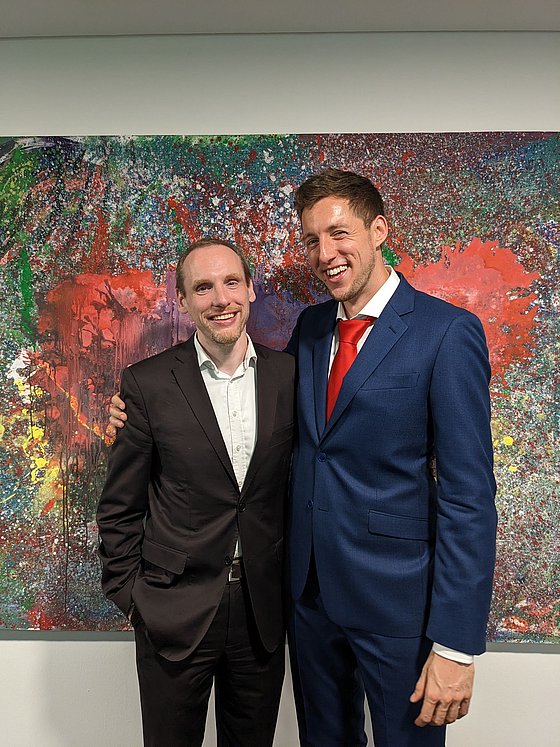Digital Shadow for Urban Freight Transport Management
Thomas Otte’s dissertation investigates urban freight transport from the perspective of local authorities. Specifically, it introduces an approach for the systematic acquisition and utilization of data on the states as well as the state changes of the urban freight transport system – thus, providing the foundation for evidence-based as well as performance-oriented urban freight transport management.
The dissertation is available for download using the following link: https://doi.org/10.18154/RWTH-2023-08567 (open-access PDF file).
We interviewed Thomas Otte about his dissertation:
What was the context of your dissertation? What projects or other factors particularly influenced your dissertation?
In one of my first research projects at RWTH Aachen University, we addressed the
(re-)integration of the production sector into urban areas. Within this context, I was particularly interested in the logistical aspects of the (urban) production facility – such as its supply with raw materials, pre-products, and manufacturing equipment, as well as the outbound transport of finished products.
When I examined the interactions and the impact of the resulting traffic volumes within the urban area, I gained initial insights into the complexity of the urban freight transport system. My research curiosity arose and I chose to continue exploring this complexity.
On this basis, I decided to investigate to what extent current technological developments – particularly those stemming from digital transformation – can be made accessible and usable in a way that generates overall economic benefits, specifically for freight transport management activities in local authorities.
How does your work contribute to the field of research?
It is a key objective of freight transport management in local authorities to ensure the framework conditions for an efficient and, at the same time, socially and environmentally compatible operation of urban freight transport. To achieve this objective, there exists a plethora of initiatives from which effective isolated initiatives or combinations of initiatives can be selected.
At the same time, there is a particular lack of data for local authorities on the location-dependent as well as time-dependent states of the urban freight transport system, thereby limiting their capabilities for an informed decision-making related to this selection process.
My dissertation provides a technological solution approach in the form of a digital shadow to bridge this data as well as information gap in order to expand the decision-making capabilities of local authorities with regard to urban freight transport management. A digital shadow embodies a digital representation of selected, context-relevant components of the physical system, thereby creating a context-specific perspective on the complex reality of urban freight transport. This data-driven perspective establishes an essential foundation for an evidence-based as well as performance-oriented freight transport management and, by this, contributes to expanding the decision-making capabilities of local authorities.

What does the future hold for you and the topic?
The ongoing digitalization and the associated digital transformation offer a wide range of opportunities for improving technologies, products, and processes – both within as well as beyond the focus and contribution of my dissertation.
I look forward to continue investing my professional resources to discover, develop, and consolidate such kind of opportunities – for example, on our path to successfully transforming the mobility, energy, resource, and industry sector.
